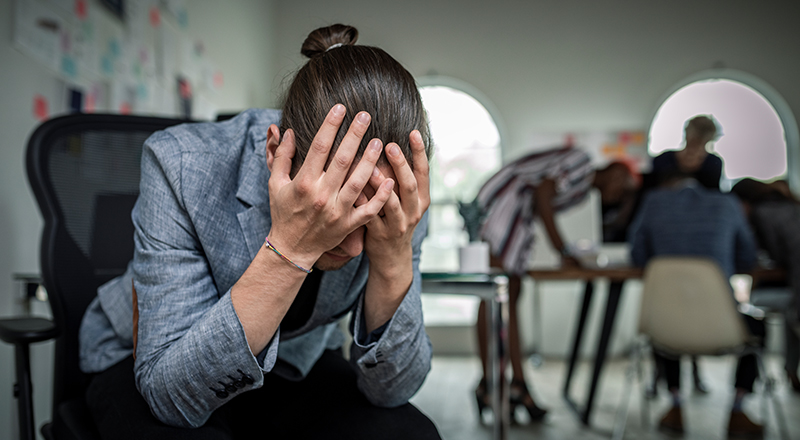Let’s make some brief notes, of particular importance today, regarding anxiety in general.
What is anxiety?
Anxiety is a universal phenomenon, meaning it is present in all human beings. We only refer to an anxiety disorder when anxiety is unreasonably intense, follows a dysfunctional pattern (independent of expected triggering factors), and has an impact on the person’s quality of life and functionality. In other words, it affects the individual’s ability to perform the roles and functions they were previously engaged in or are expected to fulfill based on age and biographical development.
Everything suggests that anxiety functions as an indicator, a nonspecific alarm that can be triggered for various reasons, including biological factors (any changes in the body’s homeostasis), psychological factors (negative thoughts, a sense of danger, boredom, intense or conflicting emotions, etc.), or purely external factors (any source of real or perceived danger or aggression, etc.).

So, if anxiety is inevitable and present in all individuals, can it be useful or beneficial at certain times? Absolutely! Physiological anxiety reflects alert levels that correspond to the circumstances we need to respond to, and our behavior, skills, and performance must adapt accordingly. Therefore, it is natural to experience higher anxiety before an important work meeting compared to a typical workday. The opposite would be abnormal and indicate a psychopathological component in anxiety, the emergence of heightened anxiety when there is no external stimulus justifying it.
This leads us to another important point. If most people experience episodes of anxiety or chronic anxiety that is not justified or directly linked to specific stressful events, does that mean they have an anxiety disorder? As understood in psychiatry today, not necessarily. This means that even if a person experiences anxiety derived from excessive anticipation of potential negative situations (anticipatory anxiety), tends to expect the worst (catastrophic thinking), shifts anxiety focus from a major issue to a minor one (displacement), or experiences certain somatic responses with bodily symptoms (somatization), if these phenomena do not significantly impact their functioning and role performance expected for their developmental stage, it is not considered a disorder.
Treatment for anxiety. Is therapy necessary?
The answer, therefore, is no.
Many people identify with some of the patterns described above and immediately start thinking that they need treatment from a psychologist or therapist. In many instances, they seek out a professional, who may reinforce this idea. However, it is important to delineate when therapy is aimed at treating a disorder and when it is not, but rather focuses on personal growth, refinement of psychological functions, and the capacity for adaptation. This personal growth therapy does not specifically address any disorder.
Medication for anxiety
I emphasize this delimitation of the concept of anxiety disorder, which I consider fundamental because in recent years there has been a blurring of its boundaries, and it seems that anyone who experiences anxiety at some point is considered to have a disorder and needs psychotherapeutic or pharmacological intervention. I do not mean to imply that such individuals cannot benefit from preventive psychotherapy or short-term pharmacological treatment by personal choice. What I am pointing out is that experiencing anxiety more or less frequently does not necessarily require any treatment. The pros and cons of any intervention must be carefully weighed.

Levels of anxiety
While historically anxiety disorders have been considered common and mild, this is not the case in a significant percentage of instances. Unfortunately, anxiety disorders have a tendency to become chronic and, therefore, persist for extended periods throughout life. They can be debilitating to the extent that they are a major cause of work absenteeism, reduced productivity, medical leaves, and healthcare expenses.
Finally, some forms of obsessive-compulsive disorder or agoraphobia can become highly incapacitating.
Fighting Anxiety
Providing general recommendations for something as unspecific as the term “anxiety” is nearly impossible. Interestingly, the concept of unspecificity is something that the reader of this article might associate with anxiety. Anxiety is a state of unspecific alertness. It is the alarm that goes off in our minds due to a multitude and disparity of factors, both internal and external, and from past, present, or future situations. Therefore, the primary recommendation is that if you feel anxious, take an interest in discovering what causes it instead of just trying to eliminate it. You will surely find that almost always, anxiety is an irreplaceable source of introspection and knowledge.
If, despite this, anxiety overwhelms you, do not hesitate to seek help.



